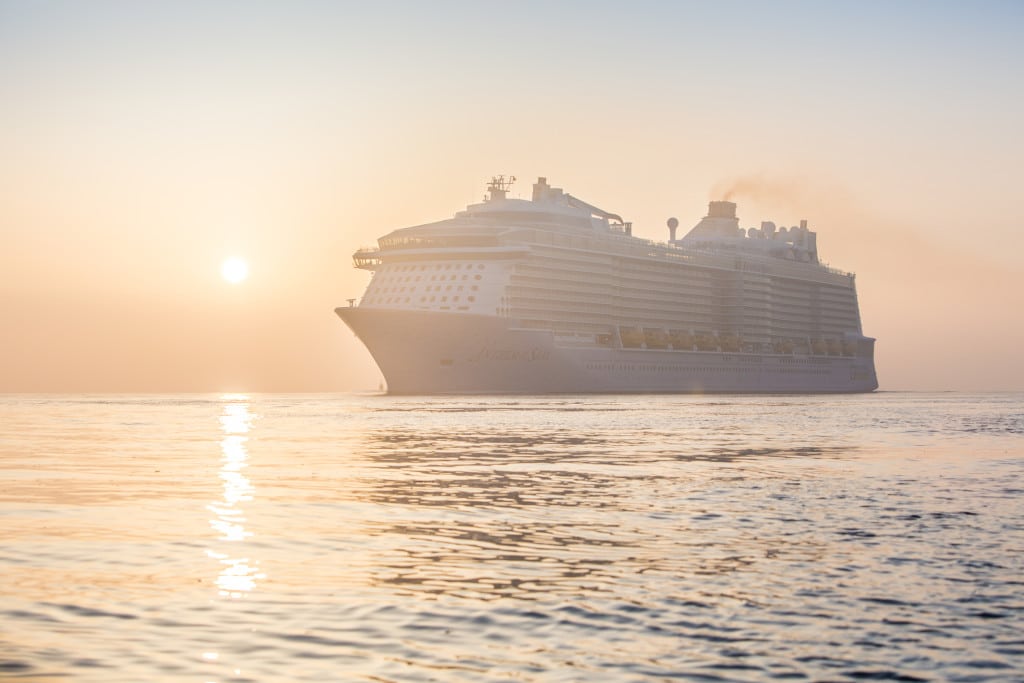Royal Caribbean CEO Says Last-Minute Discounts Are Not Coming Back

Skift Take
Roughly a year after Royal Caribbean Cruises started to shy away from using last-minute sales to fill ships, CEO Richard Fain said the price-strict policy is sticking around.
In fact, Fain said during a call with analysts Tuesday, the world's second-largest cruise ship company has expanded its "price integrity" program.
The Miami-based company will introduce no new discounts within the 30 days before a sailing for all cruises in the United States, Canada, United Kingdom, and Ireland markets. The only sailings that will be discounted within a month of departure are three- to four-night trips, which are traditionally booked late.
Previously, the company was avoiding discounts within the last 10 to 40 days of cruises, depending on the length of the itinerary. Royal Caribbean solidified the policy in December.
"We did decide that having different rules for different itinerary lengths was possibly confusing and definitely unnecessary," Fain said. "We are a strong believer that clarity and specificity in a program like this is important because otherwise the exceptions undermined the integrity of the program, even if they are in fact very rare."
Fain said the company expected from the start that ships would sail with some empty cabins as a result and miss out on the onboard revenue those late-booking passengers would bring.
"We know that in 2016, we will still see some residual impact relating to these empty cabins, but by 2017, we feel comfortable that the impact will be positive," he said.
Other cruise companies including Carnival Corp. and Norwegian Cruise Line Holdings have also said they are holding firm on price, even at the expense of sailing with completely full ships.
Royal Caribbean reported fourth-quarter profits of more than $206 million and full-year net income of nearly $666 million. Shares fell 15 percent Tuesday over lower-than-expected projections for the full year.
During the call to discuss fourth-quarter earnings, Fain and other executives addressed hot-button issues including China's economic growth, turmoil in Europe and the Zika virus affecting Latin America and the Caribbean.
Later this year, Royal Caribbean will have five ships sailing in China after the brand new Ovation of the Seas arrives in June. But the company expects yields, or the amount of money generated per passenger per day, to be down slightly in 2016.
More Indicators
That's because the industry overall is growing its presence in the region, putting pressure on ticket prices, and because Royal Caribbean will be sailing during off-peak times and in second-tier markets such as Tianjin. Still, the company said it is optimistic about its prospects in China.
"China is one of our highest yielding markets," said chief financial officer Jason Liberty. "It is a little bit more expensive to operate, but also we get higher yields for those products. So it is very much contributing to our yields and it's very much contributing to our profits and our margins and our business, which is why our outlook continues to be very favorable for the Chinese market."
Liberty said demand from North American travelers dipped in Europe after the terrorist attacks in Paris in November and the company saw a small drop in bookings from European-sourced markets there. While he said demand rebounded, pricing is weaker for Eastern Mediterranean itineraries than it was a year ago. Yields will likely be down a bit in Europe for the full year, the company said.
One news item that has not yet had an impact: the Zika virus that is spreading in the Americas. The World Health Organization has declared a global health emergency because of the mosquito-borne illness, which has been linked to a birth defect. Pregnant women have been urged to avoid travel to two dozen countries, including several that are popular cruise destinations such as the U.S. Virgin Islands, Barbados, and Puerto Rico.
"We sense that there is more concern about China than, say, the Caribbean," Fain said during an appearance on CNBC's Closing Bell [see below]. "The Caribbean is a little more than half of our total business in 2016 and it’s been very strong this year And so far, we've seen really no significant impact from the Zika virus."




